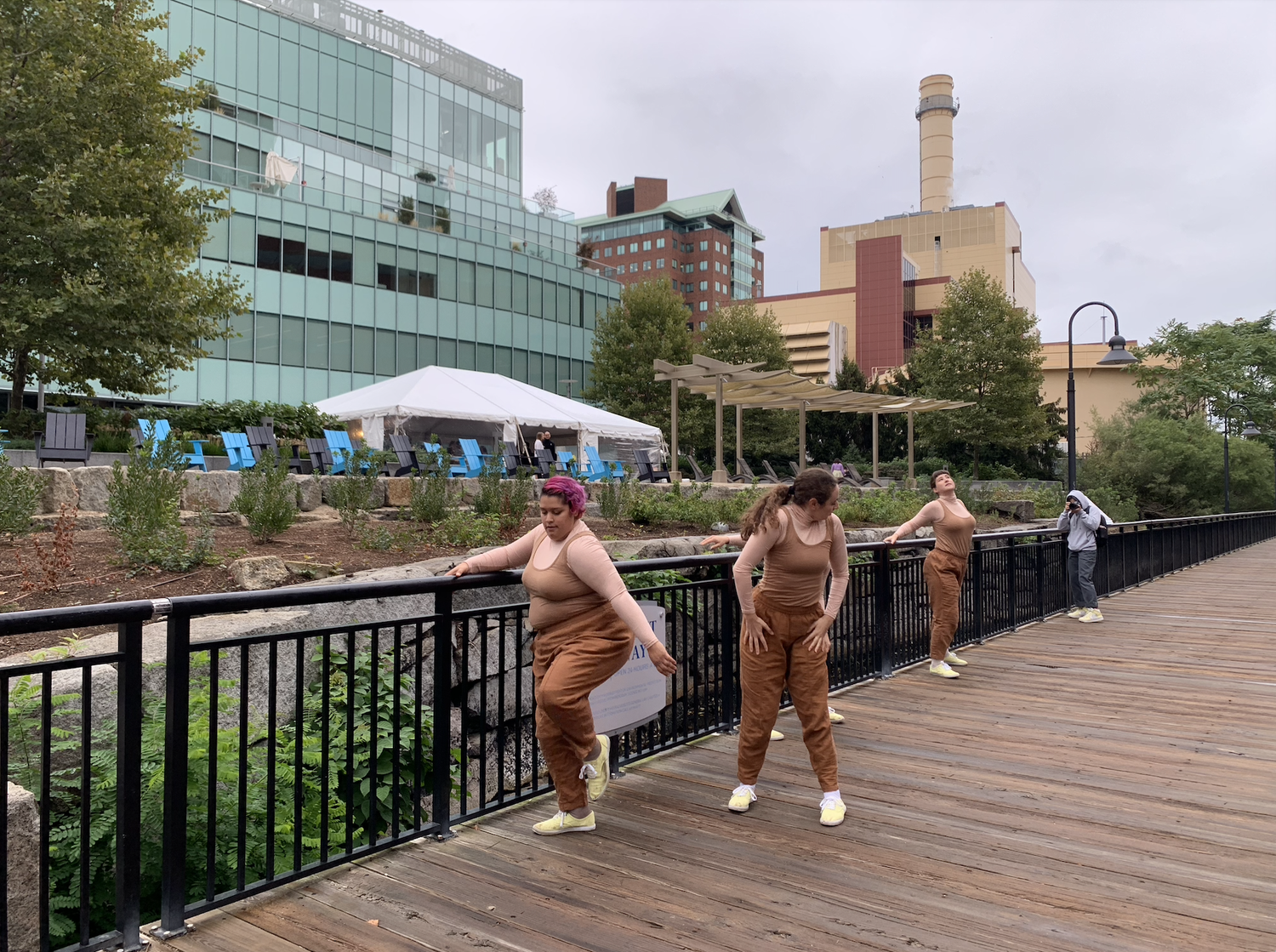
News
Jeremy Weinstein Was Offered the Harvard Kennedy School Deanship. Who Is He?

News
Interim Harvard President Alan Garber’s 100 Days of Trial By Fire

News
‘Mourning into a Movement’: Family Members of George Floyd, Eric Garner Discuss Grief and Activism at IOP Forum

News
Expert Witness Says Northrop’s Lack of Summer Contact Was ‘Typical’ for University Case Workers

News
Harvard Residential Advisers Allege University Administrators Engaged in Union-Busting Tactics
The Click’s “Emotive Land”: Experience Dance Through Augmented Reality

During a brisk afternoon on Saturday, Oct. 1, a small crowd congregating in Kendall Square’s Canal District witnessed dancers cloaked in neutral fabrics warming up in preparation for an hour-long performance that would stretch along the Charles River on Cambridge Parkway until concluding in Cambridge Common. The moving performance was far from traditional.
Aptly titled “Emotive Land,” this project by Boston arts collective The Click blended the natural environment with augmented reality. Alongside a live performance, “Emotive Land” featured pre-recorded routines accessible through an app which allowed passersby to calibrate their location and view a dance set in their current environment.
During the launch, attendees could alternate between viewing dancers in-person and through their smartphones. Project co-creator Lonnie Stanton provided commentary for the contemporary dance regarding the significance of the physical space — a heavily industrial, commercial area with the central backdrop of the Charles River. Stanton highlighted the branches growing through the canal grates and weeds emerging from the sidewalk — the endurance of nature and the ways humans interact with it.
“That's what I think we should all be looking to: How to adapt. How nature has,” Stanton said.
While observing the dancers twist through trees or against railings, Stanton emphasized the autonomy of dances and audience members alike.
“I love the idea of putting dance out here without the boundaries,” she said. “Whether it’s tape and a chalk line or a stage that’s built up on the grass, that doesn’t interest me. And so I like the blurred boundaries.”
The “Emotive Land” app enabled audience members to wander around and face away from the live dancers while experiencing augmented reality.
“Emotive Land” co-creator Kristin C. Wagner, who also participated as a dancer in this launch, explained that inspiration for this project struck during the pandemic. Wagner revealed that a portion of the performance took place along her typical running route, where she imagined kayakers on the Charles River could observe a dance from the water.
Technological execution proved difficult, however. For instance, all the dances filmed for the app had to be performed against a green screen, which performer Alexandria K. Nunwelier noted was atypical.
“We had to compact the movement for the size of our green screen so it could live bigger once it’s on the phone, in a way,” Nunwlier said.
Wagner similarly found the experience unusual.
“It really struck me that day that I was in an incredibly manufactured environment, and how ironic that was given the nature of the project and where we were going to end up appearing,” she said.
Still, Nunwelier found that the human element of dance shone through in augmented reality as it featured a “real person and not an animation.”
Moreover, Nunwelier recognized the power of multimedia performances compared to strictly live dance. The app allows any member of the public to view the artwork outside of any time constraint and without any personal expense.
“It allows it to live longer, live more lives than just one day, one time,” Nunwelier said.
The innovative nature of this project — combining humans, the environment, and technology — serves as a sign of the times. In the digital age, there are many ways technology can frame our worldview and livelihood.
“Hold on to your sense of connection to nature and the importance of live [dance], but also, embrace that the world is changing,” Wagner said. “And if you don't accept some tech, you're going to get left behind, and then that doesn't serve anyone either.”
“Emotive Land” is available for download until Nov. 30 through www.theclickboston.com, as well as Apple App Store and Google Play Store.
Want to keep up with breaking news? Subscribe to our email newsletter.
